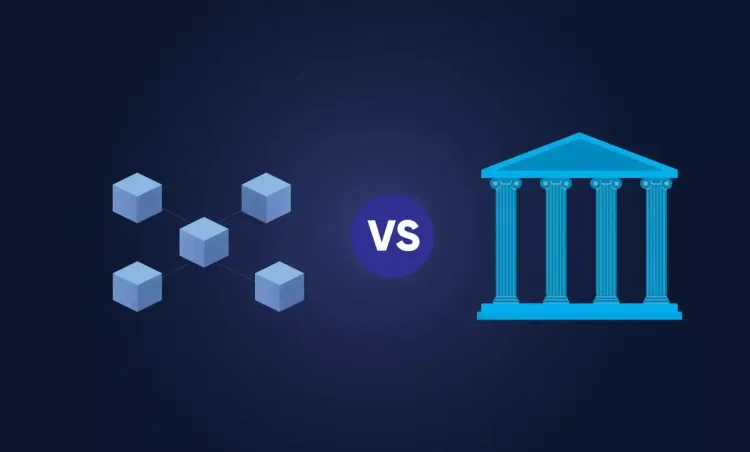People have more options for financial consultation than before, especially with artificial intelligence (AI) emerging in investment management technologies. In comparing the capabilities of human and AI advisors, one option does not necessarily prevail over the other. Each option has its strengths and limitations, which is why choosing which option to use hinges on personal priorities and financial goals. This progression in technology calls for a better understanding of the role AI and human advisors serve in designing an investment plan or strategy. The subtleties, benefits, and pitfalls of both approaches are analyzed in this article to aid the reader in determining who or what is most competent in steering them toward reaching their financial goals.
AI Investment Advisors: An Overview
AI investment advisors, also known as robo-advisors, are platforms where investments are automated. Algorithms and data processing power are applied to achieve the investment goals of an individual or company aiming to utilize a broad base of investment services. AI investment advisors speed up decision-making by analyzing a lot of market data in real-time. Moreover, because their operational expenses are lower, these AI systems charge less than human advisors. For many investors that emphasize cost-effectiveness and speed, AI advisors have built an appealing reputation.
The Benefits of Human Advisors
Human advisors have a degree of comfort around the investment process that AI lacks. They are capable of offering advice about goals as well as what the person is thinking and can think of doing. Generally, human advisors are fundamental in empathetic situations or nuanced anticipating situations, like planning for big events or dubious times in the market. They create trust and can build longer-term relationships, which is a great strength. For many investors who prefer faces over forms as well as emotional guidance alongside financial planning, human advisors have become irreplaceable.
Distinguishing Decision-Making Models
The AI’s and human advisors’ decision-making models do not resemble each other. AI constructs its suggestions based exclusively on data, which means past activity and current relevant information are synthesised into an algorithm or model that makes unbiased recommendations. This type of decision-making offers impartiality but may prove detrimental as there is little room for elasticity to cater to different market situations outside established parameters. In comparison, makes use of decisions based on experience, intuition, and market information. This allows them to traverse the contours of complex situations, leveraging unpredictable scenarios that AI is not programmed to anticipate. For investment purposes, AI and human advisors may appeal to different types of advisors based on whether the investor values formality or changeable, non-biased advice.
Financial Implications and Availability
Financial implications remain one of the most important factors for most investors when choosing AI compared to human advisors. Investment AI platforms are usually cheaper as they have lower or no minimum investment thresholds and lower management fees, which makes them available to wider swathes of investors who may have restrictions in starting. Human advisors here remain more expensive, but the level of service and personalisation fear oftentimes justifies associated costs. It becomes reasonable for the highly wealthy net individual with complex financial burdens to seek the services of a human advisor thanks to the finely tailored approach to their needs.
The Role of Emotional Intelligence
Investing is not simply the allocation of numbers; it is also managing emotions that come with fear and anxiety. Such emotions can be triggered during impulsive market activity, financial losses, or economic uncertainty. During such times, AI advisors come across as extremely efficient but cannot sadly provide reassurance and address emotional questions. Human advisors excel in providing such emotional support, helping clients remain calm and stay focused on long-term goals. This is where the importance of emotional intelligence comes into play since human advisors can assist with guidance that is valued during overwhelming periods.
Technology and Trust
AI algorithms serve with transparency and guarantee consistency, and while some investors may feel uneasy about fully depending on AI advisors for financial assistance, such technology has the potential to fill the gap fostered through the absence of emotional understanding. The notion of trust seems to be highly important, and therefore, human advisors often rely on personal interactions to build a connection and comprehensively understand the needs of their clients. Therefore, today's reliance on AI presents a dual challenge, as concerns about privacy, security, and a lack of human understanding hinder the full development of trust with AI-powered advisors.
The Evolution of Investment Consulting
With technological development, the gap between AI and human advisors is narrowing. More and more popular approaches are developing that are derived from the strengths of both hybrid models. These professionals use AI to perform some business functions like rebalancing portfolios or analyzing the market, while they are responsible for emotional and motivational support as well as strategic counseling. This collaboration provides investors with the ability to achieve maximum cooperation and utmost efficiency and accuracy while still maintaining a degree of personal touch and understanding. This cooperation offers investors the possibility of receiving maximum cooperation and utmost efficiency and accuracy while still maintaining a degree of personal touch and understanding. The future of investing is likely to focus on these hybrid models as more investors seek different and more personalised solutions to complex problems.
Conclusion
The discussion does not revolve around the competition of human versus AI financial advisors; rather, it is focused on who reflects your particular needs and financial objectives more closely. AI investment advisors appeal with their unbiased and effective service delivery due to automation, affordability, and metrics-based decision-making. In contrast, human advisors have an edge over machine-based ones in the personalization of investment advice, emotional empathy, and willingness to make modifications, which is essential for many investors. With the onset of hybrid models, investors are positioned to take advantage of the positives from both sides. Most importantly, the challenge is determining your priorities and working on the option that positions you closer to your financial goals.




